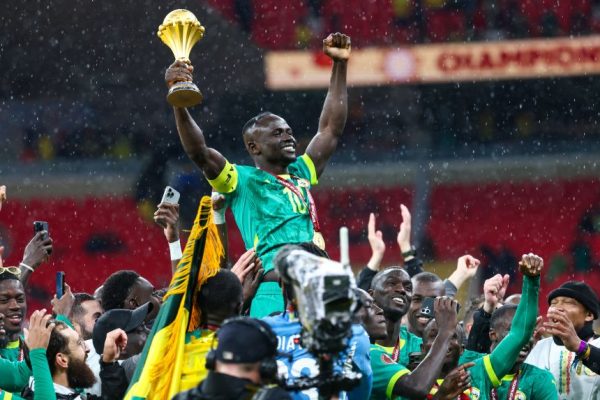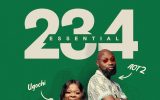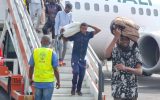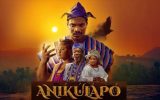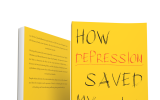by Onuoha Frank
One thing to admire in North Korea is the tenacity of the government and people in the face of staggering and often negative opposition. Hate them love them, the people always find ways to survive.
North Korea is a nation (unlike Nigeria they have attained the status of Nationhood) that almost all the countries in the western hemisphere like to hate and cast aspersions at. There are myriads of sanctions – both severe and mild, against them. There is an active dictatorship in North Korea which ironically goes by the acronym DPRK (Democratic Republic of Korea) and they hold tightly to their paranoia of their immediate neighbour South Korea.
Recently though, I have taken a different view of that nation – especially after I compared their level of development with that of our country, Nigeria. Almost 70% of the country is urbanized. Nigeria may look like a midget standing next to them on that level though.
One thing to admire in North Korea is the tenacity of the government and people in the face of staggering and often negative opposition. Hate them love them, the people always find ways to survive. Despite the Non-Proliferation Treaty, NPT, which aims to prevent the proliferation of nuclear weapons many world leaders believe that countries should reserve the right. North Korea which withdrew its support for the NPT in 2003 is one of them. They are now considered a world military power with two nuclear warheads and 1.19 million people in active duty (1.02 million army personnel, 60, 000 navy and 110,000 air). Add to the fact that they have successfully sent a satellite into the orbit, a feat Nigeria has tried unsuccessfully to achieve in recent years.
Poverty is one of the major problems North Korea grapple with on a daily basis. It should be noted however that unlike Nigeria, extreme poverty does not exist in the country. Existence of poverty is firmly connected to the sanctions imposed on the country by the international community. The United Nations Security Council leads the way in multiple sanctions such as Resolution 1718 (October 14, 2006), Resolution 1874 (June 12, 2009), Resolution 2087 (January 22, 2013) Resolution 2094 (March 7, 2013). Carla Stea from Global Research has observed that the “sanction language used to prohibit items from entering or leaving the DPRK is sufficiently broad and vague that practically any item essential for normal, healthy functioning of society is vulnerable to proscription and exclusion of use by the DPRK”. The currency of the nation is considered as non-convertible. In essence, the country has been abandoned by the rest of the world to fend for itself.
Despite legions of sanctions that have seen thousands affected by hunger, the nation is finally within grips of their unique fate. The government is mobilizing everyone – including members of the military to go into the farm and produce food that will sustain the nation. Back in February, the leader of the nation Kim Jong un said in a statement “Our nation is already a place of strong political ideals, and we have unmistakably attained the status of a strong military country. We only need to achieve self-sufficiency by farming well, and then no matter what the enemy does, socialism in our style will be strong and provide sufficient food for revolutionary construction.” It is a message every Korean has taken to heart. Characteristically, they are not waiting for saviours from outside; rather they are relying on hard work and nature’s magnanimity.
The result is already becoming evident according to reports from Associated Press “The combined overall crop production for this year and 2013 is expected to increase by 5 percent, to 5.98 million tons, according to a joint report compiled by the U.N.’s Food and Agriculture Organization and World Food Program. The report, released last November, estimated the North would still need to import 340,000 tons of cereals.” The rationing system which started as a result of the severe famine experienced in 1995 is already seeing a turn-around.
Their style of leadership may not be appealing to those of us watching and feeding off every story of fiction and non-fiction coming from western sponsored media houses, but Nigeria has so many things to learn from them. One thing we cannot all deny is the presence of a structured society and leadership in DPRK. They have very strong political ideology steeped in their own brand of socialism, Juche – the official state philosophy. Juche is an ideology of self-reliance, which states that North Korean masses are the masters of the country’s development. As a country, one cannot point to a particular ideology that binds Nigeria. Without an ideology there will be no vision.
Education is free in North Korea and it is compulsory to everyone at the age of 15, which may explain the 99 percent literacy rate. There is a kindergarten system available to all children. Higher education is serviced by over 200 institutions, which specialize in science and technology.
Health care is also free in North Korea with the health system providing a large number of hospitals and clinics peopled by very skilled professionals.
There may be human right abuses in North Korea just the way there are in China, Saudi Arabia, Russia, the United States and many more, however the lessons are there to be distilled by any country that desires long-lasting growth and development.
Nigeria cannot continue to be the baby of post-colonial politics and exploitation forever neither can we afford to look outside for our redemption. Part of the cause of our disunity is listening to outsiders tell us that we are disunited. What is being advocated is not a return to a totalitarian and autocratic leadership, but a leadership that is visionary, ideological and inspirational; a leadership that places priority on the most important issues in the life of the citizen. A leadership that is willing and ready to make personal sacrifices and enlist the populace in its development drive.
You don’t only learn from the best – there is lesson to be learned from those the world revile as well.
————————
Frank Onuoha is a historian and public affairs analyst. He tweets from @iamfrankelean
Op-ed pieces and contributions are the opinions of the writers only and do not represent the opinions of Y!/YNaija.





